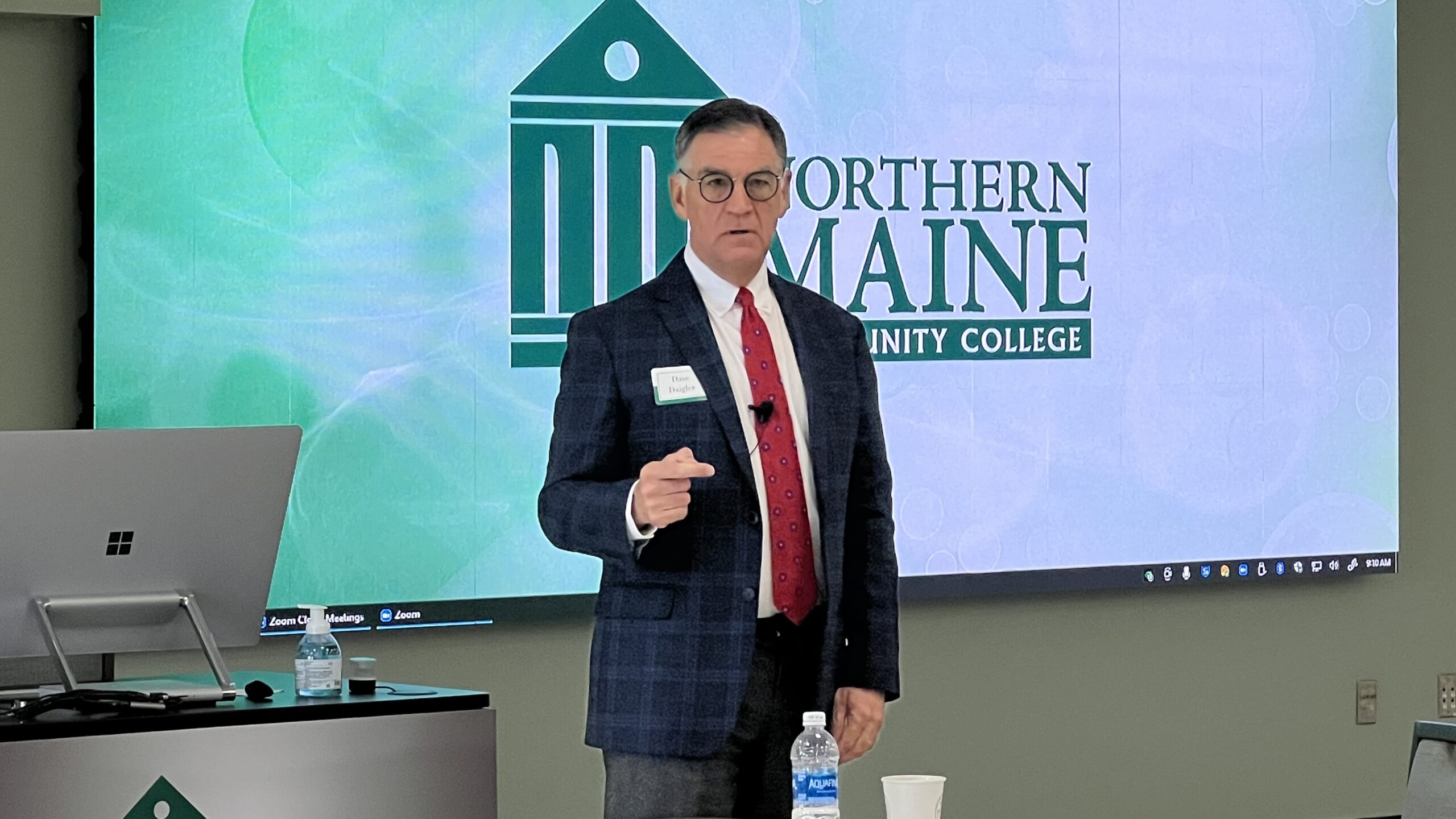
PRESQUE ISLE, Maine — Representatives from the schools in the Maine Community College System toured the nursing program simulation lab and the EMS training expansion at Northern Maine Community College in Presque Isle Friday.
Those touring were shown how simulation education can be built into their respective nursing programs.
NMCC received funding in April 2021 to expand its medical simulation lab in order to include Emergency Medical Services training. The space allows for year-round indoor training with the program’s ambulance, giving students the full experience of working with patients inside of the vehicle. The expansion was meant to help satisfy the growing need for trained EMS personnel in Aroostook.
The 5,000-square-foot space also has room for classroom instruction and lab space equipped with technology and interactive mannequins.
Students use NMCC’s simulation lab built in 2018 to work their required clinical hours without needing to be in a traditional hospital. Hours worked in the simulator can satisfy up to 50 percent of the requirement for experience.
The lab is designed just like a regular hospital, with a waiting room, patient rooms and equipment. The lab puts students through different medical scenarios, which can escalate to give them the opportunity to handle unpredictable real-world situations.
The labs located at NMCC and the University of Maine at Presque Isle use very similar systems of interactive mannequins during simulations.
The simulation center is equipped with three labs that all have interactive mannequins for students to practice their bedside manner skills and proper ways to address patients. Instructors can observe the simulations and provide students with feedback.
NMCC has 59 students enrolled in its associate nursing program, 21 in practical nursing, 11 in EMS, 18 in medical assisting and 12 in medical coding. Each program needs a different number of clinical hours in order for students to graduate.
Associate nursing students need 660 clinical hours, practical nursing needs 270, EMS requires 270 field experience hours and 990 clinical hours during a two-year program, medical assisting needs 180 externship hours and medical coding does not need any clinical hours.
Besides the tour, Maine Community College System President David Daigler met with the College Advisory Council, Foundation Board and community supporters to give updates on the Community College System.
Daigler talked about NMCC’s simulation expansion project, as well as the $20 million in budgeted funds in Gov. Janet Mills’ supplemental budget that would allow students in the high school classes of 2020-2023 to obtain free tuition.
The tuition funds are meant to give high school graduates who have been affected by the COVID-19 pandemic an incentive to continue their education.
“Our drive is to find the people who have stepped out of the education journey and bring them back in,” Daigler said. “Free college takes out one of those huge hurdles and that is the cost of tuition and fees.”






